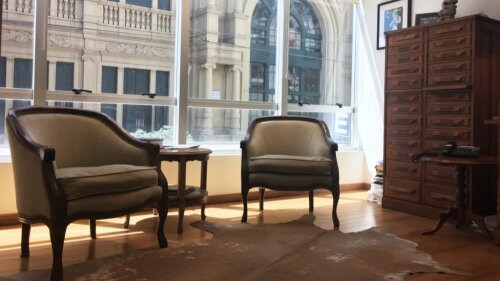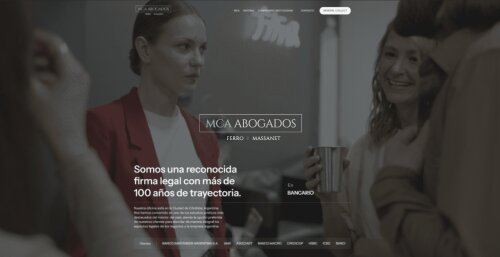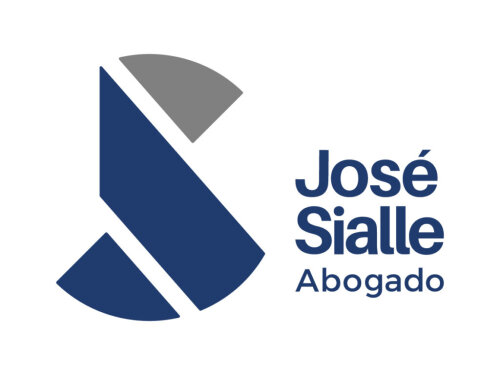Best Cannabis Law Lawyers in Córdoba
Share your needs with us, get contacted by law firms.
Free. Takes 2 min.
List of the best lawyers in Córdoba, Argentina
About Cannabis Law in Córdoba, Argentina
Cannabis law in Argentina combines national legislation, constitutional rulings and provincial rules. At the national level, the Penal Code and the narcotics law criminalize drug trafficking and sale. In 2009 the Supreme Court issued a landmark decision - Fallo Arriola - establishing that private possession of small amounts for personal consumption is not a criminal offense when it does not affect third parties. In 2017 the national government created a medical cannabis program through Law 27.350 and related regulations to promote research and regulated access for patients. Later national regulations broadened mechanisms for treated patients and caregivers to obtain cannabis products and, in certain cases, to cultivate for therapeutic use.
Provinces including Córdoba have implemented their own rules, health programs and administrative procedures to apply national standards locally. Criminal prosecutions for trafficking, sale, distribution and large-scale cultivation remain possible under national and provincial enforcement. Because interpretation and enforcement vary by court, municipality and police practice, legal outcomes often depend on the facts - where the cannabis was found, quantity, evidence of intent to sell, and whether the person is a registered medical user.
Why You May Need a Lawyer
Cannabis matters can involve criminal, administrative, civil and regulatory issues. You should consult a lawyer if you face any of the following situations:
- Police stop, search or detain you after finding cannabis or related products.
- You are charged with possession, cultivation, trafficking, sale or distribution.
- You wish to register as a medical cannabis patient or caregiver and need help with the application, documentation or appeals.
- You plan to start a cannabis-related business - production, processing, distribution or research - and need licensing, compliance and contract work.
- You have employment issues - workplace drug tests, disciplinary action or dismissal related to cannabis use.
- You face family law questions - child custody or visitation where cannabis use is alleged.
- Your cannabis or hemp crop was seized and you need to challenge seizure or seek return of property.
- You are involved in research or clinical trials and need regulatory or ethical approvals.
- You want to clear a criminal record or explore alternatives to prosecution such as diversion, pretrial measures or constitutional remedies.
Local Laws Overview
Key aspects to understand when dealing with cannabis law in Córdoba are:
- Decriminalization for private personal use - The Supreme Court ruling limits criminal penalties for possessing small amounts in private for personal consumption, but the ruling does not legalize public use, sale or trafficking. Courts must analyze each case according to facts and proportionality.
- Narcotics law and trafficking offenses - Sale, distribution, large-scale cultivation and organized trafficking remain criminal offenses under national narcotics law. Penalties can be severe and include imprisonment.
- Medical cannabis regime - National Law 27.350 and subsequent regulations created a framework for medical research, patient access and, where authorized, home cultivation for therapeutic purposes. Provincial health authorities implement registration systems and may have local procedures to obtain authorization.
- Administrative controls and health regulations - Cannabis products for medical use must comply with health and quality rules. Unregulated products can be subject to seizure and sanctions. Municipal rules may regulate public consumption, sales points and local policing practices.
- Driving and public safety - Driving under the influence of drugs is prohibited. Possession in public places may lead to administrative sanctions, fines or criminal proceedings depending on circumstances and evidence.
- Commercial and industrial activity - Commercial production, processing and sale require licensing, environmental permits and compliance with tax and labor laws. Industrial hemp may be regulated differently and often requires specific authorization.
Frequently Asked Questions
Is cannabis legal for recreational use in Córdoba?
No. Recreational use is not legally authorized. The Supreme Court ruling decriminalized private possession of small amounts for personal use in specific circumstances, but this is not the same as legalization. Sale, distribution and public consumption remain illegal and can lead to criminal or administrative penalties.
Can I grow cannabis at home for personal use?
Growing cannabis at home for non-medical recreational purposes can lead to legal risk. Registered medical patients or authorized caregivers may obtain permissions under national and provincial medical cannabis programs to cultivate for therapeutic use. Unregistered cultivation may be prosecuted if authorities find evidence of intent to sell or if quantities are large. Always consult a lawyer before cultivating.
How do I register as a medical cannabis patient or caregiver?
Registration procedures are handled through the national program and provincial health authorities. You will typically need medical documentation supporting the therapeutic need, identification, and an application form. Requirements and processing steps vary - a lawyer or patient-advocacy organization can help prepare documentation and represent you in appeals.
What should I do if the police search me or seize cannabis?
Stay calm and avoid resisting. You have the right to remain silent and the right to request a lawyer. Ask for identification and documentation of the seizure. Note time, place and witnesses. Do not sign documents you do not understand. Contact a lawyer promptly to review legality of the search and seizure and to plan next steps such as motions to recover property or challenge the detention.
Can I be arrested for possession of a small amount?
Arrest is possible depending on the circumstances, police practice and judicial interpretation. While private personal possession has a constitutional protection after Fallo Arriola, police may still detain or charge people. A lawyer can assess defenses, argue disproportionate enforcement and seek alternatives such as dismissal or diversion.
What are the penalties for trafficking or selling cannabis?
Trafficking, sale and distribution are serious crimes under national narcotics law and carry significant penalties, which can include years of imprisonment, fines and asset forfeiture. Penalties depend on the scale of the operation, previous convictions and aggravating circumstances such as involvement of minors or organized crime.
Can my employer fire me for cannabis use?
Employment consequences depend on the employer policy, sector and whether your use affects job performance or safety. Public sector positions and safety-sensitive roles have stricter rules. If you are a registered medical user, you may have rights under health-protection rules - however that does not guarantee immunity from disciplinary action. A labor lawyer can advise on wrongful dismissal claims, reasonable accommodation and employer obligations.
How does cannabis affect child custody or family law cases?
Allegations of cannabis use can affect custody or visitation disputes if a court believes use endangers the child. Courts focus on the childs best interests - evidence of impairment, unsafe environments or criminal convictions can influence decisions. If you use cannabis for medical reasons, document prescriptions and medical guidance. A family lawyer can advise on how to present medical evidence and protect parental rights.
What evidence helps my legal case involving cannabis?
Useful evidence includes medical prescriptions, diagnostic reports, registration with medical cannabis programs, receipts for legally acquired products, photos showing private consumption spaces, witness statements, police records, and any communications related to the incident. Preserve documents and avoid destroying evidence. A lawyer will help collect, organize and present evidence effectively.
How do I find a qualified cannabis lawyer in Córdoba?
Look for lawyers experienced in criminal law, health law, administrative law and regulatory compliance who have handled cannabis matters. Resources include the Colegio de Abogados de Córdoba for referrals, legal clinics at local universities and patient-advocacy groups that can recommend counsel. Ask about experience with medical cannabis registration, criminal defense in narcotics cases and regulatory licensing if you plan commercial activity.
Additional Resources
Below are types of resources and institutions that can help - contact them directly through local directories or in-person offices:
- Ministerio de Salud de la Provincia de Córdoba - for provincial medical cannabis programs, registries and health guidance.
- Ministerio de Salud de la Nación - oversees the national medical cannabis program, regulations and research initiatives.
- Colegio de Abogados de Córdoba - bar association providing lawyer referrals and professional standards.
- Public Defender Office - for people who cannot afford private counsel and face criminal charges.
- Patient-advocacy organizations and support groups - local associations that assist patients with registration, documentation and community support.
- University research centers and hospitals - institutions engaged in clinical research and expert medical opinions.
Next Steps
If you need legal assistance with a cannabis issue in Córdoba, follow these practical steps:
- Document everything - keep medical records, prescriptions, receipts and any documentation related to the incident or your medical treatment.
- Avoid discussing the case with police or third parties without a lawyer present. Exercise your right to remain silent and request counsel.
- Seek legal advice quickly - contact a lawyer experienced in cannabis law, criminal defense or health regulatory matters. If you cannot afford a private lawyer, seek the public defender.
- If you are a medical patient, check registration status with provincial and national health programs and gather supporting medical documentation.
- Preserve evidence - photos, communications and witness information can be critical to defense or administrative procedures.
- Consider alternate dispute resolution or administrative remedies when appropriate - regulatory appeals, amparo actions and motions to recover seized property can be time-sensitive.
- If you are pursuing a business or research project, get legal counsel to navigate licensing, environmental requirements and contracts before you begin.
Legal situations involving cannabis can be complex and outcomes depend on facts, local practice and timely legal strategy. A specialized lawyer will help assess risks, protect your rights and pursue the best available remedies under national and provincial law.
Lawzana helps you find the best lawyers and law firms in Córdoba through a curated and pre-screened list of qualified legal professionals. Our platform offers rankings and detailed profiles of attorneys and law firms, allowing you to compare based on practice areas, including Cannabis Law, experience, and client feedback.
Each profile includes a description of the firm's areas of practice, client reviews, team members and partners, year of establishment, spoken languages, office locations, contact information, social media presence, and any published articles or resources. Most firms on our platform speak English and are experienced in both local and international legal matters.
Get a quote from top-rated law firms in Córdoba, Argentina — quickly, securely, and without unnecessary hassle.
Disclaimer:
The information provided on this page is for general informational purposes only and does not constitute legal advice. While we strive to ensure the accuracy and relevance of the content, legal information may change over time, and interpretations of the law can vary. You should always consult with a qualified legal professional for advice specific to your situation.
We disclaim all liability for actions taken or not taken based on the content of this page. If you believe any information is incorrect or outdated, please contact us, and we will review and update it where appropriate.













